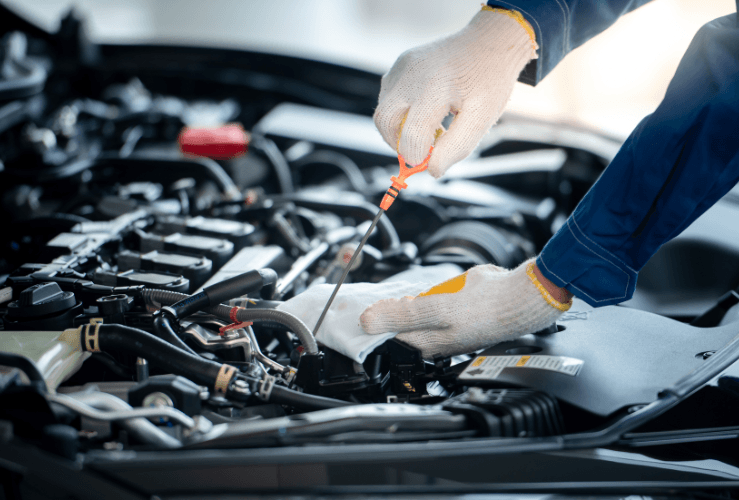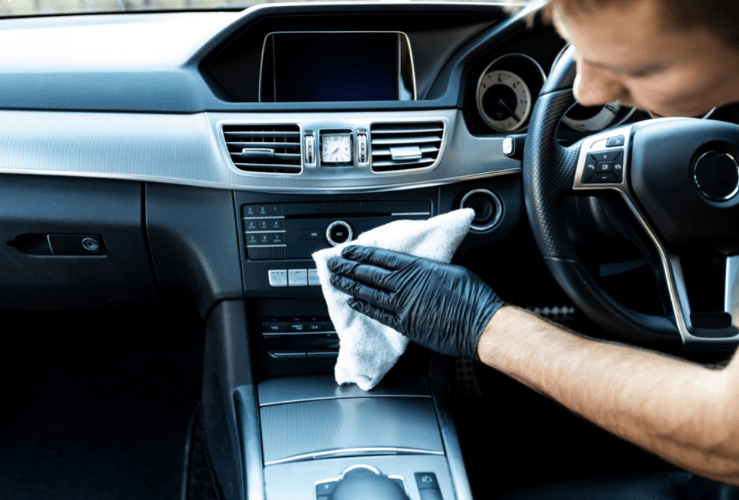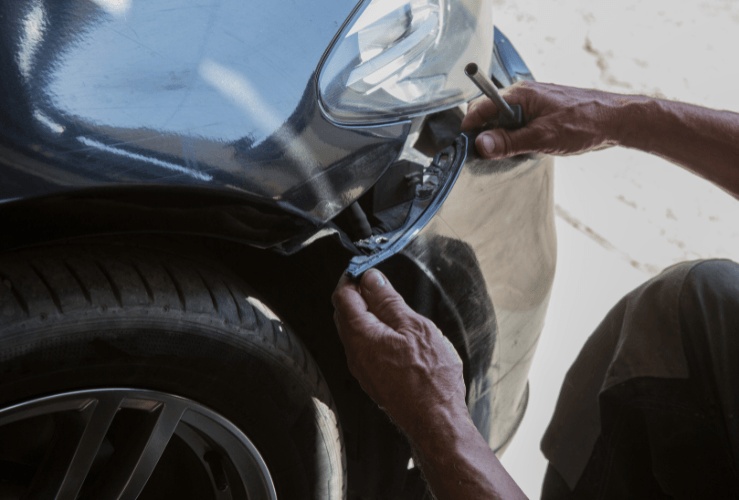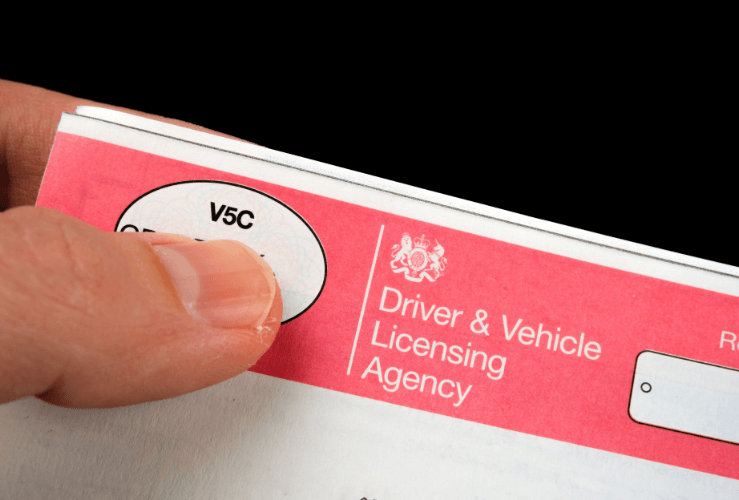It's estimated that the average car is driven for around four years before it is sold on. That means four years of mileage accumulation, wear and tear - and of course, depreciation.
But when the time comes to sell, it's natural you'll want to maximise the resale value of your car.
Should I sell privately or to a dealer?
First you'll need to decide whether you want to sell it privately, or sell it to a dealer.
You'll almost certainly get more money selling it yourself, because a dealer will give you a lower price so they can sell the vehicle on for a profit.
The downside is you'll need to be available to handle private buyers some of whom may be difficult to deal with or even be time wasters.
Advertising, test drives and paperwork all take time and effort.
Alternatively, you might decide to trade your car in for a new one (the easiest option), or sell it to a car buying service (which will give you the lowest price).
Whichever option you choose, the following tips should help maximise the resale value of your car.
Cars that will go up in value
Most cars go down in value, but a handful actually go up.
Cars that received critical acclaim and have developed iconic status early on will likely be worth more in the future.
That said, there are no certainties, and besides, you can’t travel back in time and buy a different car!

Maintenance and upkeep
There are a host of ways to ensure the value of your car remains as high as possible, but most of them must be undertaken regularly throughout the course of ownership.
Among these, maintenance and upkeep are critical.
Alongside essential mechanical repairs, it's important you keep up with the smaller maintenance tasks before they lead to something more serious.
Repair small issues
Small issues such as a window motor burning out, a chipped windscreen, or your wheel cover flying off - should all be fixed as soon as they happen.
For those with busy lives, it's not always easy to find the time to address these issues, but doing so will help preserve the long-term health - and value - of your vehicle.
Apparently minor problems such as these don’t stop your car from being driveable, but when it comes time to sell, it will appear to would-be buyers as a neglected set of wheels.
First impressions matter a great deal to a potential buyer - they want the best value car possible. But if small cosmetic issues have built up, it raises the question: are there more serious problems with the car?
Invest in new tyres
What's the general condition of your tyres? What's the tread wear like? Do they hold air well? Are there any bulges?
If so, these will impact the value your car is perceived as having.
When the time comes to sell your vehicle, it might be worth investing in a new set of tyres. This adds to the 'kerb appeal' - giving the impression that your vehicle has been well taken care of.
Critically, if a would-be buyer noticed worn out tyres, they may reject the vehicle outright.
Used car buyers already have enough concerns, without the additional hassle and cost of replacing a vehicle's tyres as soon as they buy it.
While a new set of tyres won’t increase the 'book value' of your vehicle, they could make all the difference between a sale - and a fail.
At the very least, worn tyres give the buyer a strong haggling point. It's likely that the cost of buying new tyres is less than the difference between their offer and your asking price.
A properly balanced set of new tyres will also reduce any shimmying around during test drives - further increasing your chances of a successful sale.
Buy new wheel trims
If a new set of tyres is beyond your budget, consider buying some new wheel trims.
Much like magpies, people are attracted to shiny things - and a set of brand spanking new wheel trims will sharpen up a would-be buyer's first impressions.
A new set of wheel trims cost as little as £30 - and could help you make considerably more when selling.

Clean your car inside and out
Speaking of shiny, spend some time waxing and buffing your car so it looks as bright and clean as possible.
If you don’t fancy putting in the elbow grease yourself - which in any case requires specialist tools and products to be done properly - go to a car detailing specialist.
Also known as car valeting, this deep-cleaning service will ensure your vehicle looks as spotless as possible and therefore more attractive to a prospective buyer.
Cleaning the inside of the car
A good detailing service will include carpet and mat cleaning, and any necessary repairs to those items.
Carpet shampoo should remove stains and make mats look new.
Ideally it should also include air vent cleaning with compressed brushes, cleaning of window seals, upholstery cleaning and air freshener.
Cleaning the outside of the car
Outside, the alloy wheels should be cleaned with pressure washers, as should the tyres.
And of course, the exterior should be hand washed with specialist products and waxed.
Windows should also be cleaned.
How much does it cost to get a car professionally cleaned?
A basic interior/exterior clean should cost up to £60, while a deep clean could cost between £250 and £500.
Naturally, an upper-end valeting will eat into your asking price, but the point is to make your vehicle as clean and shiny as possible, within your particular budget.
Car smells of cigarette smoke?
If your car's interior smells of cigarette smoke, try the following:
- Air the vehicle on a breezy day with the windows down
- Wipe down seats and interior with dryer sheets
- Leave a bowl of ground coffee in the car, or boil some cinnamon sticks and leave them in a mug inside your vehicle. This should help mask any lingering smells
All that said, your vehicle will retain its value better if no one ever smokes in it!
Also ensure the area around the driver's seat is clean, including the dashboard. This is where the buyer will be spending a lot of time - assuming the sale goes through - so make it look as inviting as possible.
Cleaning under the car bonnet
You might also consider cleaning under the bonnet.
While keeping the engine and parts cleaner won’t really help your car's ongoing mechanical health, it will give the impression of a well-cared-for car.
Most would-be buyers have little knowledge of car mechanics, so if they examine it, it will likely be a cursory glance - and having everything looking shiny and clean will help buyer confidence.
Some detailing/valeting services will clean your engine as part of their offering.
Clean you car's rubber trim
Additionally, your vehicles' rubber trim will become dull and dirty over time, which can worsen first impressions of a would-be buyer. To brighten up your rubber trim, buy some silicone-based cleaner and conditioner to rub the dirt off. This is likely to be included in any valeting service, too.

Fixing defects and damage
Mechanical
It goes without saying you should repair any mechanical issues as soon as they arise.
A buyer will be less interested if they need to undertake fixes as soon as they take receipt of the vehicle.
Note that some technical issues are simply not worth the cost. For example, if your engine or transmission are on the way out, you won't get the money back that it costs to fix them in the sale price.
But smaller issues - such as worn brakes pads - can be resolved for a small cost.
Exterior and interior
Equally, you need to decide if it's worth repairing cosmetic problems with the car.
Chipped bodywork can be expensive to get done, and can make a serious dent in your chances of a sale.
The same goes with overall paintwork.
A good paint job can run into thousands, while a cheap paint job may make the car look even worse. If the vehicle is newer and in otherwise good condition, it may be worth paying for a new paint job, but for most sellers, it's simply not economically viable.
That said, a luxury car with poor paintwork may benefit from a new layer of paint.
Change the oil
If a buyer (or anyone who looks over it for them) decides to check the oil and it's grimy, it suggests the engine is dirty and burning oil - and they may not buy it.
Even if you haven't changed the oil as often as you should have, it's worth doing this quick and easy job.

Credit: Ascannio - stock.adobe.com
Keep all paperwork
It's critical you keep all paperwork associated with your car.
This will give the buyer confidence that the vehicle has been looked after, and there won’t be any nasty surprises down the line.
These documents include:
- Logbook or the V5C document - informing the DVLA that you've sold your car
- Service history - to show your vehicle has been well maintained, boosting buyer confidence
- MOT certificate - showing your car is roadworthy
- Car owner's manual
- Car parts receipts - for the buyer to keep
It's important to keep receipts for all work completed - this includes parts, labour, even oil changes. Aim to keep all receipts in chronological order.
Additionally, when selling you'll need:
- Proof of reservation and purchase - two copies, one for you and one for the buyer
- Car warranty - to inform the company about the change in ownership
- Insurance policy - so you can cancel your insurance cover
Remember not to let the buyer take the documents or take photos of them before the sale has been finalised.
MOT tip
If your MOT is due to run out in the coming months, think about getting a new MOT carried out ahead of time.
This will boost buyer confidence and it will be one less job for them to do.

Drive safely and carefully
Another important way you can maintain the value of your car is by driving safely and carefully.
Do not drive it beyond its capabilities, as this can cause a huge amount of extra wear and tear on the vehicle's components.
Driving your vehicle too hard can also damage the chassis - not a cheap or simple job to repair.
Replacing a chassis is likely to involve many other new items, including brake pipes, flexi brake pipes, nuts etc. Indeed, a chassis replacement may not be economically viable.
Driving safely and staying alert on the road is arguably the most important preventive measure you take to keep your vehicle in good working order.
Driving recklessly, on the other hand, is likely to cause more oil leaks, make the oil burn off faster, and result in engine parts, brakes and suspension failing prematurely.
The bottom line: if you abuse your vehicle and drive recklessly, it will be worth considerably less when the time comes to resell.
Safe driving tips
- Don't drive distracted
- Don't get angered by other road users
- Avoid cutting up other road users
- Use indicators in good time
- Keep your distance (bear in mind the two second rule)
- Keep your speed down
- Look ahead and anticipate
- Watch out for road markings
- Switch off your mobile phone!
- Have your eyesight checked regularly
Do your research
It's important to get a solid idea of the value of your car. Use online car valuation tools to determine this - such as Autotrader car valuation.
SImply input details such as car age, trim level, mileage and condition to get a guide price.
Next, use the internet to find cars like yours for sale - and their asking price. For private sales, one of your best bets is gumtree.com.
These prices may be higher or lower than the book value of your old car, as arrived at by the value calculator. If your car has lower mileage or is in better condition, you may be able to ask for a higher price.
You will of course have a better chance of achieving your asking price if you've followed the preceding tips.
Trading in your car?
If you decide to trade in your vehicle, be sure to shop around and get several quotes.
A good approach is to get a quote from one dealership, then take it to another dealership and ask them to beat the price.





